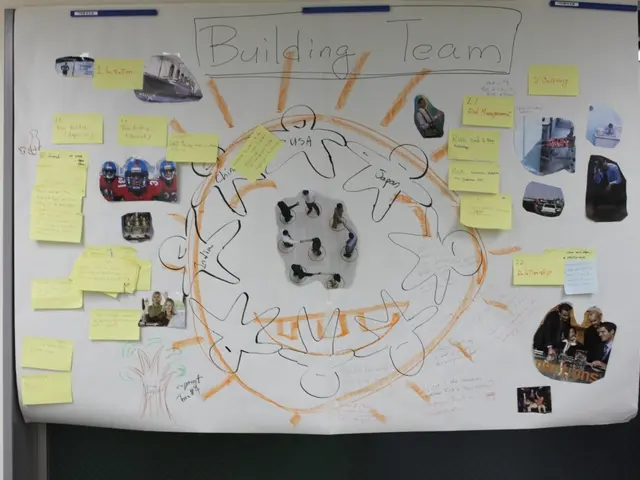Discussing a Severe Health Condition with Children Involving a Family Member: A Guide
Breakin' it down to the raw: Telling your little ones about a serious illness ain't easy peasy, but ya gotta do it. Here's a few tips to help ya out.
First, give yourself a minute. Process the news, get some moral support from a partner or close family. Get on the same page with them too. Then plan the first conversation with your kids.
Here's how to break it to 'em: be honest, keep it age-appropriate, and tailor it to their personality. Ask them what they already know about the illness, then spill the beans in a way that makes sense to 'em. Be clear about what's gonna happen - tell 'em about changes they might see in their loved one's day-to-day life. Answer their questions and don't be afraid to show a bit of emotion.
Now let's dig a bit deeper:
Ask 'em what they know? To get a sense of their knowledge level. Start with something simple like "Have you ever heard of cancer?" Follow up with "What'd you think it was?" This'll help you understand what you're working with.
Be honest, Simply tell 'em the truth. Don't hide the facts. Kids can pick up on more than we give 'em credit for. Keep it simple, but straightforward. Use age-appropriate words.
Adapt to their personality, Think about how they usually cope. Tailor the conversation to match their style, some kids might want a lot of information, while others prefer the basics.
Tell 'em what's up, Let 'em know about the changes that are coming. Be upfront about it. Explain things like Mommy's gonna lose her hair, or that Grandma won't be able to pick 'em up from school anymore.
Answer their questions, If they ask something you're unsure about, it's OK to say that you'll find out. Or just plain old say "I don't know".
Show them you're coping, Display your own coping skills to reassure them that they can cope too. Emotions run high, so stay in the game.
Return the favor, Listen to your kiddo. Be there for 'em, drop a line, or just hang out. They might need someone to talk to.
Remember, there's no handbook for this. Emotions run high, trust ya gut. Give 'em some credit - they might be stronger than you think.
Resources:[1] "Talking to Kids About a Parent's Serious Illness" by ACS Cancer.org (2021)[2] "Helping Children Cope When a Parent Is Hospitalized" by John Hopkins Medicine (2020)[3] "How to Talk to Kids About Illness" by ClevelandClinic.org (2022)
- In the midst of family health challenges, it's essential to familiarize yourself with mental-health resources to ensure your parenting skills remain effective.2.Engaging in science-backed parenting during trying times like medical-conditions may pave the way for a healthier family-health landscape.3.By staying updated with health-and-wellness news, you can equip yourself with the current knowledge about cancer and other medical-conditions, thereby enhancing your conversation with children.4.Reading articles like "Talking to Kids About a Parent's Serious Illness" on ACS Cancer.org or "Helping Children Cope When a Parent Is Hospitalized" on John Hopkins Medicine website may provide priceless insight for parenting in such critical situations.5.Apart from seeking guidance from these resources, open communication with your little ones about their emotions and questions can foster a strong bond between you and help both of you navigate through the challenges of cancer together.







